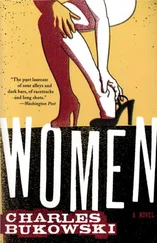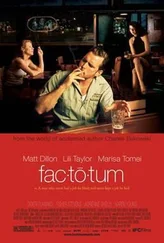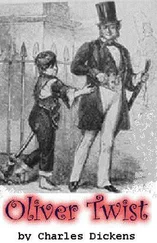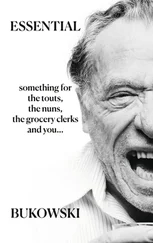“Oh, Carmen.”
“Looking at that lunch tray, on one and two, you already off to a bad start.”
“In the name of the Green Gay Goddess—”
“When you start up with that chemo, you going to lose your appetite something serious. How abouts we load up on the food while we can?”
“Look at that sad little gray chicken patty,” Alice said.
“I want to be a team player,” Tilda interjected. “But honestly, Meryl Streep couldn’t convince the Donner party to bite into that thing.”
“ Completely through the looking glass.” Converted to the mode Oliver referred to as her fashion voice, under the ostensible premise of speaking to Tilda, Alice performed for the room. “Do you know the hospital won’t give me fresh fruits or vegetables? How can it possibly be in my best interest for them to shove canned fruits at me?”
“You want to do this again?” Carmen asked. “We can do this again.”
“Every single bit of received wisdom about good food turns upside down.”
“Your counts get low, and if there’s a stray germ on a piece of fresh fruit—”
“I have Oliver throw the microwave out of our home, yet you insist on nuking anything that comes to me?”
“In a can, we control. What’s so hard to understand ’bout that?”
“My counts are good, Carmen. They told me this morning.”
“Your counts are good considering you got cancer.”
“I do not have cancer,” Alice stated. “I am en remissyionne. ”
“You in here for a reason, mama—”
He used to stare at their door in Dartmouth-Hitchcock, counting the hours, then the minutes, until Alice’s mother arrived, as if wanting hard enough would somehow will her presence. Some days he had more patience, managed the boredom, the procedural small talk with doctors, nurses explaining what the next test was, all the waiting, the begging Alice to eat, listening to her looping monologues (how could she do this, it was all so hard ). Also the stretches when he had the opposite problem: getting through the quietude, Alice sleeping, red glowy numbers on the alarm clock ticking away their savings, their dreams.
But once Grandma and the baby arrived, then wham, the clock started eating into his holy and awaited break time. As if rushing out of a building’s flaming wreckage, Oliver would hightail it for the parking lot’s courtesy van, heading to one of the places downtown, grabbing a chicken sandwich from a sports bars near campus, some sad Chinese lunch from a buffet table of greased food rotting beneath heat lamps, maybe an Indian special that was as thick and spicy as cow dung. If the weather wasn’t too foul, and he really needed to clear his head, he might just walk, away from the old gentrified district, out toward the town perimeter and the strip malls. Overprocessed, grease-fire-charred garbage: his official coping mechanism. He made sure to binge away from the hospital, out of sight of Alice; she’d disapprove big-time, and about the last thing he wanted was to have her see anything that revolted her, anything that even had a chance of teasing her for her lack of appetite. He wouldn’t let her see anything that might cause her faith in him to waver.
When Alice’s face had still been pretty swollen, and her counts were still in the shitter, and she’d barely had the strength to hold up a glass of water, and couldn’t eat so much as a third of Dartmouth’s version of scrambled eggs, Oliver had realized: This is one way it could happen . The fear that had followed was visionary. Whether or not her hunger strike was intentional or drug induced was beside the point. No matter how much the doctors, nurses, Tilda, Oliver, or even Alice’s mom prompted her, no matter whether Alice understood their words, caught their implications, without eating, Oliver had realized, she’d keep fading: turning too weak to try and pick up a plastic fork, too weak to chew. At which point, her inability to put a piece of food into her mouth, the impossibility of her chewing, the momentum of her weariness and weakness and lack of appetite, they’d spur more weariness and weakness, furthering her lack of appetite. Liquid nutrition would not matter.
This was one way she could vanish.
“These eggs actually look pretty good,” he’d said. “Why not go for one more bite?”

Mt. Zion Cancer Center, 1200 York Ave., Hematology/Oncology, Rm. 820
Whitman Memorial, 1220 York Ave., Hematology/Oncology, Rm. 412 (critical)
Two separate bouts of induction chemo. Six consolidations. Plus enough radiation to create a mutant army. These along with two bone marrow transplants — the first allogenic, then, when the cancer returned, a nonallogenic transplant, using a chemo drug approved for use on children, still experimental in adults. In short, every weapon they could think of. Still her leukemia came back, its third and final stay. In the back of the exam room, the doctor, damp in the eyes, continued with his responsibilities, explaining that they’d continue the woman’s regular appointments, keep monitoring her, administering her routine of blood transfusions; she’d come into the urgent care center when necessary, and the hospital would of course admit her if and when needed. If she was strong enough and was willing, they could even try more chemo. But the most that could be expected was temporary easement.
The best thing to say about any day that followed was: she did not feel any worse; at the same time there were no days when she felt an improvement. No days when she felt stronger, or had sustained bursts of energy, when her counts rose of their own accord, when her most cherished foods seemed more appetizing than biting down on a cinder block. She regressed from walking to needing a walker, from needing a walker to taking a wheelchair. The woman could not take care of herself but was too proud to enter a home; she felt that was giving up. But her insurance would not cover a home living aide; so one of her grandchildren took a leave of absence from Columbia’s graduate program in nanophysics and moved into the old Queens brownstone; and since the old woman’s thighs were too weak and the toilet too low, five or six times a day she helped her grandmother — all wrinkles and skin and noodle appendages — squat onto and rise from the bowl. The granddaughter herself was spindly in the manner of a preteen boy, accustomed to huge science books and hours of reading, not even close to in shape to lift anybody, even a shriveled old woman. She certainly had no experience transporting invalid seniors back and forth to the hospital. But she purchased a heavy steel ramp, and convinced the super to let her store the thing in the ground-floor maintenance closet, so on the two days a week when it was time to get Granny out of the apartment for her transfusions (the only things the old woman left the apartment for anymore), the granddaughter could get her up and down the large front steps out in front of the stately prewar building. She ordered an expensive car service for each trip, paid the super to set up the heavy ramp over the front steps. Transferring the old woman out of the chair and into the car was one more slice of fresh hell; the super had been a Russian mob underling before coming to America and refused to get involved unless the granddaughter paid him more; usually the driver stood and watched.
In this joyless manner the two women moved from the beginning of the endgame to wherever this new place happened to be, and were summarily informed that the insurance company had determined that, in this new phase, they no longer needed care from an elite hospital. The granddaughter stayed up late reading policy manuals, she spent untold hours on the phone appealing the transfer of care, dealing with all the attendant paperwork that surrounded her appeals. The granddaughter conscripted very bright friends to do research, make calls, cast the proverbial wide net. She did not want her grandmother transferred to that city hospital. Her friends came up with a drug, not yet approved by the Food and Drug Administration, but undergoing testing at various hospitals in the Northeast. The tests were still in their early stages; some results were encouraging. The woman’s eyes were gummy each morning; her left lid was red and inflamed; she saw things in double and triple, and was weak in a manner that made her previous states of weakness look like workouts by steroid freaks on Venice Beach. The city hospital was a dark and gloomy hull, a broken-down graveyard, especially in comparison to the gleam of new money that sharpened Mt. Zion’s hallways. The city hospital’s waiting rooms were like outclassed cousins whose attempts to keep up made them appear much more quaint and sad.
Читать дальше












